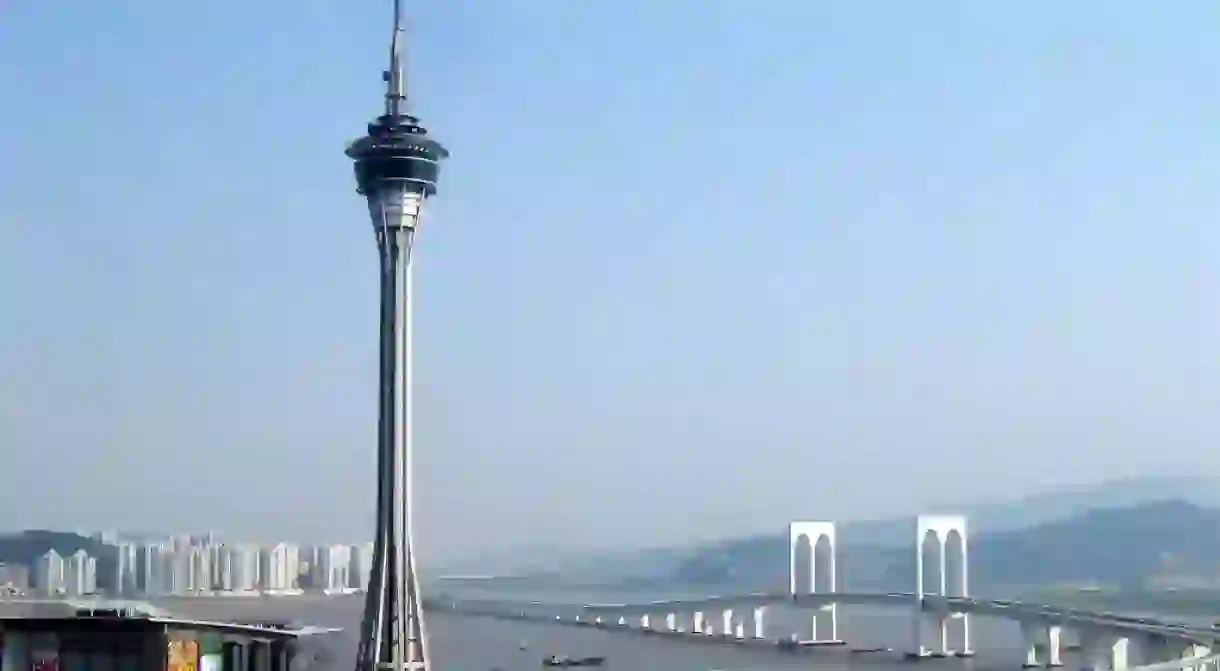10 Fascinating Facts You Didn't Know About Macau

There’s more to Macau than meets the eye. It might be famous for being the ‘Las Vegas of the East’, but it’s home to more than just casinos. Here are a few facts about the former Portuguese colony that just may surprise you.
1. Macau got its name from a misunderstanding.
The name ‘Macau’ is thought to have been coined through a misunderstanding by Portuguese seafarers when they first arrived on the island. They asked the locals for the name of the land, but the locals misunderstood, and answered with ‘A-Ma-Gau’, thinking that the Portuguese were asking for the name of the local temple called A-Ma. From there, the Portuguese took ‘A-Ma-Gau’ and the territory officially became known as Macau.

2. It’s the second richest territory in the world.
You could say that Macau itself has emerged as the biggest winner from its casino-dominated city. According to the International Monetary Fund, as of October 2017, Macau is the second richest country/territory on earth. It’s GDP per capita is US$114,430. In addition, Macau has zero public debt and had fiscal reserves of US$55 billion at the end of 2016.
3. It’s the most densely populated region on earth.
While other places might seem more overpopulated, the key with Macau is its tiny size. A population of 648,500 squeezes in to just 30.5 sq. km making it, officially, the most densely populated territory on earth. This equates to 55,454 people per square mile. Then take into account that in 2017, Macau saw a total of 32.6 million visitors. An overwhelming number of people for such a tiny place.
4. The local government pays its citizens.
Due to huge annual profits from casino taxes, each year the local government gives permanent residents of Macau 9,000 patacas (about US$1,200) and non-permanent residents 5,400 patacas (about US$670). This amount has remained unchanged since 2014.

5. Macau was Europe’s first and last colony in China.
Macau was the last European colony in China. It was leased to Portugal in 1557 as a trading post and officially became a Portuguese territory in 1887. Macau was eventually handed back to Chinese sovereignty in 1999. Today, the 450-year legacy that the Portuguese left in Macau lives on through its distinct East-meets-West culture and architecture. In addition, Portuguese remains an official language.
6. It’s home to one of the world’s most critically endangered languages.
Patuá is a creole language (a blend of Portuguese and Cantonese) and developed in Macau to become the language of Macau’s indigenous Eurasian community: the Macanese. In 2009, UNESCO classified Patuá as a ‘critically endangered’ language. As of the year 2000, there were estimated to be just 50 Patuá speakers worldwide.
7. It’s home to the world’s first fusion cuisine.
‘Macanese cuisine’ is a mix of southern Chinese and Portuguese ingredients and cooking techniques. With a history dating back over 400 years, the cuisine is often regarded as the world’s first fusion cuisine. You can try signature dishes like minchi and African chicken at local Macanese restaurant ‘Riquexo’, which is run by 102-year-old Aida de Jesus, dubbed ‘the unofficial godmother of Macanese cuisine’, and her daughter Sonia Palmer.
Riquexo Café, 69 Avenida Sidonio Pais, Macau, +853 2856 5655

It is Guinness World Record breaker for world’s highest bungee jump.
9. The Historic Centre of Macau is a UNESCO World Heritage Site.
There’s life beyond Macau’s casinos. Indeed, in 2005 the Historic Centre of Macau was inscribed on the Unesco World Heritage List over 20 locations that exhibit the unique co-existence of two contrasting cultures: Chinese and Portuguese.

10. It rakes in three times more than Las Vegas in annual casino profits.
Macau is the most successful gaming capital on earth. The city’s booming casino industry accounts for around 80% of its economy. It remains the only place in China were gambling is legal, making it a huge attraction for gamblers from the mainland and Hong Kong. Macau generates three times the annual gambling revenue as Vegas with gross gaming revenue of US$28 billion annually, compared to US$6.4 billion generated by Vegas. What’s more, Las Vegas has 135 casinos compared to just 49 in Macau.













